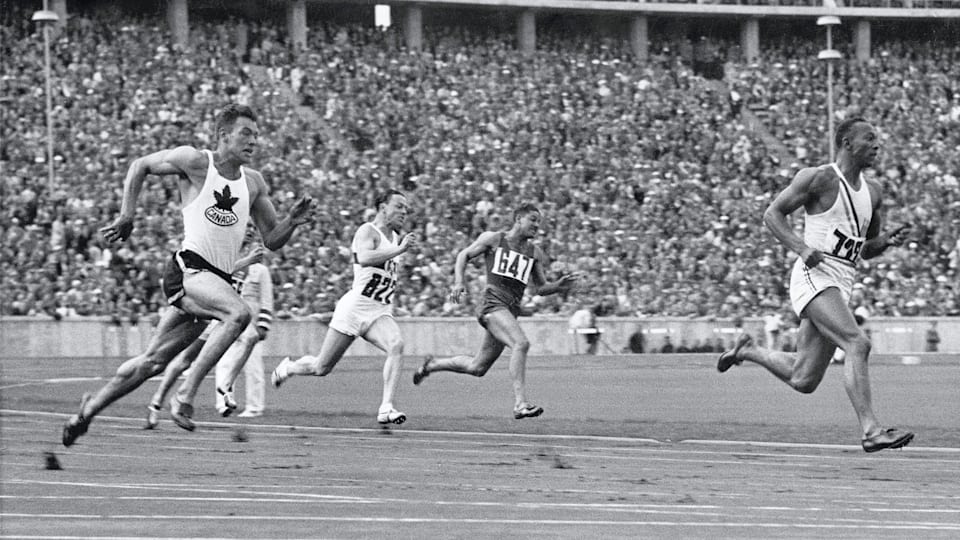Jesse Owens completes the hat-trick with 200m win
Two events completed, two gold medals in the bag, Jesse Owens lined up for the 200m at the Berlin 1936 Olympic Games on the verge of a very special achievement. In sublime form, full of confidence and with his major rival Ralph Metcalfe absent, the stage was set for an Olympic hat-trick.

Jesse Owens stepped on to the track for the 200m final on 5 August after nearly four days of continuous competition. The 22-year-old had already won seven consecutive races and the long jump final, picking up two Olympic gold medals in the process and setting Olympic records in both of his finals.
In comparison to the dramatic duel with Luz Long in the long jump pit the day before, and the controversy that was to follow in the 4x100m relay, Owens’ eighth race in Berlin’s Olympic Stadium was relatively straightforward.
Ralph Metcalfe, Owens’ teammate and rival who more often than not had held the upper hand in the 200m during their college days – with Owens representing Ohio State and Metcalfe attending Marquette University in Milwaukee – was not in the field. The 1932 Los Angeles Olympic Games 200m bronze medallist had unexpectedly finished fourth in the US Olympic trials, thereby failing to make the team.
This did not stop the USA’s sprinters once again showing their dominance. In the opening 200m heats on 4 August, just before Owens’ dramatic passage through the long jump qualifying competition, the 100m champion had equalled the Olympic record of 21.1 seconds. Teammate Bob Packard was the closest challenger in terms of time, winning his heat in 21.2 seconds. But it was the USA’s Mack Robinson, older brother of the legendary Major League Baseball second baseman Jackie Robinson – the first African American to play in the big leagues – who posed the biggest threat to Owens.
The 22-year-old Robinson, who had finished second to Owens in the US Olympic trials, eased through his first two heats. He went quicker still in the semifinals the next day, winning in 21.1 seconds to equal Owens’ Olympic record. For the first time at the 1936 Games, an athlete had recorded a quicker time than Owens in a corresponding heat or semifinal. The Alabama man had claimed his semifinal in 21.3 seconds.
But any thought of an upset in the final disappeared seconds after the gun went. A glorious symphony of speed and ease of movement, Owens appears in the footage of the race to be barely disturbing the cinder track. By the bend he was comfortably clear, an advantage he extended down the back straight.
Owens smashed his own Olympic record to finish in 20.7 seconds, just under half a second clear of Robinson. The Netherlands’ Tinus Osendarp, who was never in the frame, repeated his 100m feat by snatching the bronze medal.
Owens, who raced in a pair of hand crafted leather shoes presented to him before the Games by Adolf Dassler, the man who in 1949 would found Adidas, had captivated the German fans. The loud, happy crowd in Berlin’s Olympic Stadium rose as one to acknowledge the now three-time Olympic champion.
Three down, one to go.
